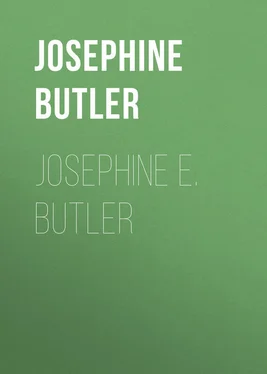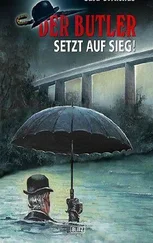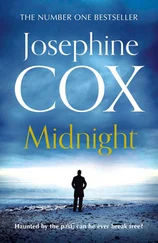Josephine Butler - Josephine E. Butler
Здесь есть возможность читать онлайн «Josephine Butler - Josephine E. Butler» — ознакомительный отрывок электронной книги совершенно бесплатно, а после прочтения отрывка купить полную версию. В некоторых случаях можно слушать аудио, скачать через торрент в формате fb2 и присутствует краткое содержание. Жанр: foreign_antique, foreign_prose, на английском языке. Описание произведения, (предисловие) а так же отзывы посетителей доступны на портале библиотеки ЛибКат.
- Название:Josephine E. Butler
- Автор:
- Жанр:
- Год:неизвестен
- ISBN:нет данных
- Рейтинг книги:5 / 5. Голосов: 1
-
Избранное:Добавить в избранное
- Отзывы:
-
Ваша оценка:
- 100
- 1
- 2
- 3
- 4
- 5
Josephine E. Butler: краткое содержание, описание и аннотация
Предлагаем к чтению аннотацию, описание, краткое содержание или предисловие (зависит от того, что написал сам автор книги «Josephine E. Butler»). Если вы не нашли необходимую информацию о книге — напишите в комментариях, мы постараемся отыскать её.
Josephine E. Butler — читать онлайн ознакомительный отрывок
Ниже представлен текст книги, разбитый по страницам. Система сохранения места последней прочитанной страницы, позволяет с удобством читать онлайн бесплатно книгу «Josephine E. Butler», без необходимости каждый раз заново искать на чём Вы остановились. Поставьте закладку, и сможете в любой момент перейти на страницу, на которой закончили чтение.
Интервал:
Закладка:
Among the public events which interested us most during these years was the revolution in Naples, the change of dynasty, and Garibaldi’s career. Our interest was in part of a personal nature, as my sister, Madame Meuricoffre, and her husband were in the midst of these events. She had succeeded Jessie White Mario in the care of the wounded Garibaldians in the hospitals, and was personally acquainted with some of the actors in the dramatic scenes of that time. Having told her that my husband had set as a subject for a prize essay – to be competed for in the College at Cheltenham – “The unification of Italy,” my sister mentioned it to Garibaldi, in expressing to him our sympathy for him and his cause. He immediately wrote a few lines, signing his name at the end, to be sent, through her, to the boy who should write the best essay on the subject so near to his heart.
A part of the summer holidays of 1864 were spent at Coniston in the house of Mr. James Marshall, which he lent to us. His sister, Mrs. Myers, had been our kind and constant friend at Cheltenham. It was a beautiful summer. We had returned to Cheltenham only a few days when a heavy sorrow fell upon our home, the brightest of our little circle being suddenly snatched away from us. The dark shadow of that cloud cannot easily be described. I quote part of a letter written some weeks after our child’s death to a friend.
Cheltenham, August, 1864 .These are but weak words. May you never know the grief which they hide rather than reveal. But God is good. He has, in mercy, at last sent me a ray of light, and low in the dust at His feet I have thanked Him for that ray of light as I never thanked Him for any blessing in the whole of my life before. It was difficult to endure at first the shock of the suddenness of that agonising death. Little gentle spirit! the softest death for her would have seemed sad enough. Never can I lose that memory – the fall, the sudden cry, and then the silence. It was pitiful to see her, helpless in her father’s arms, her little drooping head resting on his shoulder, and her beautiful golden hair, all stained with blood, falling over his arm. Would to God that I had died that death for her! If we had been permitted, I thought, to have one look, one word of farewell, one moment of recognition! But though life flickered for an hour, she never recognised the father and mother whom she loved so dearly. We called her by her name, but there was no answer. She was our only daughter, the light and joy of our lives. She flitted in and out like a butterfly all day. She had never had a day’s or an hour’s illness in all her sweet life. She never gave us a moment of anxiety, her life was one flowing stream of mirth and fun and abounding love. The last morning she had said to me a little verse she had learned somewhere —
Every morning the warm sun
Rises fair and bright;
But the evening cometh on,
And the dark, cold night.
There is a bright land far away,
Where tis never-ending day!
The dark, cold night came too soon for us, for it was that same evening, at seven o’clock, that she fell. The last words I had with her were about a pretty caterpillar she had found; she came to my room to beg for a little box to put it in. I gave it her and said, “Now trot away, for I am late for tea.” What would I not give now for five minutes of that sweet presence? The only discipline she ever had was an occasional conflict with her own strong feelings and will. She disliked nothing so much as her little German lessons. Fräulein Blümke had called her one day to have one. She was sitting in a low chair. She grasped the arms of it tightly, and, looking very grave and determined, she replied, “Hush, wait a bit, I am fighting!” She sat silent for a few moments, and then walked quickly and firmly to have her German lesson. Fräulein asked her what she meant by saying she was fighting, and she replied, “I was fighting with myself” (to overcome her unwillingness to go to her books). I overheard Fräulein say to her in the midst of the lesson: “Arbeit, Eva, arbeit!” To which Eva replied with decision, “I am arbeiting , Miss Blümke, as hard as ever I can.”
One evening last autumn, when I went to see her after she was in bed and we were alone, she said: “Mammy, if I go to heaven before you, when the door of heaven opens to let you in I will run so fast to meet you; and when you put your arms round me, and we kiss each other, all the angels will stand still to see us .” And she raised herself up in her ardour, her face beaming and her little chest heaving with the excitement of her loving anticipation. I recall her look; not the merry laughing look she generally had, but softened into an overflowing tenderness of the soul. She lay down again, but could not rest, and raising herself once more said, “I would like to pray again” (she had already said her little prayer); and we prayed again, about this meeting in heaven. I never thought for a moment that she would go first. I don’t think I ever had a thought of death in connection with her; she was so full of life and energy. She was always showing her love in active ways. We used to imagine what it would be when she grew up, developing into acts of mercy and kindness. She was passionately devoted to her father, and after hugging him, and heaping endearing names upon him, she would fly off and tax her poor little tender fingers by making him something – a pincushion or kettle-holder. She made him blue, pink, white and striped pincushions and mats, for which he had not much use. But now he treasures up her poor little gifts as more precious than gold. If my head ached, she would bathe it with a sponge for an hour without tiring. Sweet Eva! Well might the Saviour say, “Of such is the Kingdom of Heaven.” She was so perfectly truthful, candid and pure. It was a wonderful repose for me, a good gift of God, when troubled by the evils in the world or my own thoughts, to turn to the perfect innocence and purity of that little maiden. But that joy is gone now for us. I am troubled for my husband. His grief is so deep and silent; but he is very, very patient. He loves children and all young creatures, and his love for her was wonderful. Her face, as she lay in death, wore a look of sweet, calm surprise, as if she said, “Now I see God.” We stood in awe before her. She seemed to rebuke our grief in her rapt and holy sleep. Her hair had grown very long lately, and was of a deep chestnut brown, which in the sun flashed out all golden: —
Hair like a golden halo lying
Upon a pillow white;
Parted lips that mock all sighing,
Good night – good night!
Good night in anguish and in bitter pain;
Good morrow crowns another of the heavenly train.
This sorrow seemed to give in a measure a new direction to our lives and interests. There were some weeks of uncomforted grief. Her flight from earth had had the appearance of a most cruel accident. But do the words “accident” or “chance” properly find a place in the vocabulary of those who have placed themselves, and those dear to them, in a special manner under the daily providential care of a loving God? Here there entered into the heart of our grief the intellectual difficulty, the moral perplexity and dismay which are not the least terrifying of the phantoms which haunt the “Valley of the shadow of Death” – that dark passage through which some toil only to emerge into a hopeless and final denial of the Divine goodness, the complete bankruptcy of faith; and others, by the mercy of God, through a still deeper experience, into a yet firmer trust in His unfailing love.
One day, going into his study, I found my husband alone, and looking ill. His hands were cold, he had an unusual paleness in his face, and he seemed faint. I was alarmed. I kneeled beside him, and, shaking myself out of my own stupor of grief, I spoke “comfortably” to him, and forced myself to talk cheerfully, even joyfully, of the happiness of our child, of the unclouded brightness of her brief life on earth, and her escape from the trials and sorrows she might have met with had she lived. He responded readily to the offered comfort, and the effort to strengthen him was helpful to myself. After this I often went to him in the evening after school hours, when, sitting side by side, we spoke of our child in heaven, until our own loss seemed to become somewhat less bitter.
Читать дальшеИнтервал:
Закладка:
Похожие книги на «Josephine E. Butler»
Представляем Вашему вниманию похожие книги на «Josephine E. Butler» списком для выбора. Мы отобрали схожую по названию и смыслу литературу в надежде предоставить читателям больше вариантов отыскать новые, интересные, ещё непрочитанные произведения.
Обсуждение, отзывы о книге «Josephine E. Butler» и просто собственные мнения читателей. Оставьте ваши комментарии, напишите, что Вы думаете о произведении, его смысле или главных героях. Укажите что конкретно понравилось, а что нет, и почему Вы так считаете.












